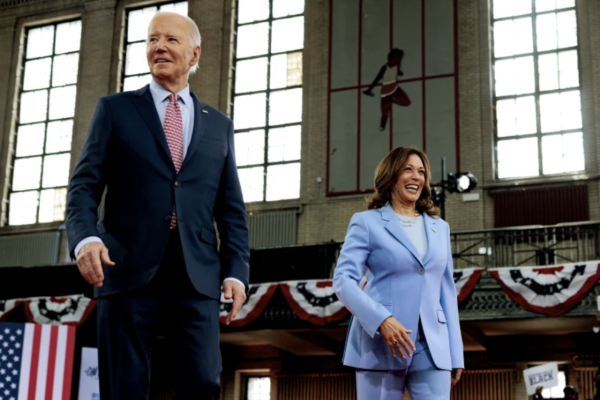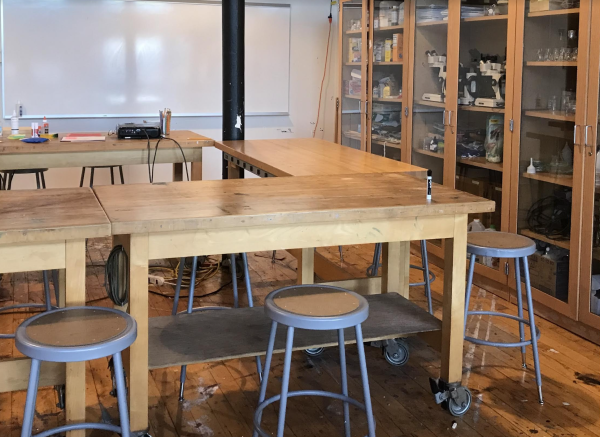The Inconvenience of Assault
April 21, 2020
Dr. Christina Blasey Ford’s testimony against Brett Kavanaugh came four years after I was sexually assaulted. I began to speak, for the first time, about my own experiences after listening to Dr. Ford; after the #MeToo movement gained momentum and after #BelieveSurvivors started trending. In no small part, this massive public outcry helped me to break my own silence. Watching Tara Reade come forward is a harsh reminder of why my silence felt necessary to maintain for years.
Tara Reade, a former senate aid, first accused Joe Biden of sexual misconduct one year ago. Three weeks ago, she further expanded on her allegations. The New York Times, in its “examination’” of Reade’s account, claimed that in their investigations, they could find no pattern of misconduct from Biden. The Times then noted that Reade is the 8th woman to come forward with allegations of sexual misconduct against Biden, and that his other accusers believe Reade’s account.
Biden’s campaign has openly denied the allegations. Major media outlets have been slow to report– most outlets reported on it almost three weeks after Reade’s story initially broke, (if they reported at all.) Every piece seems more concerned with proving that Reade’s allegations are false than investigating Biden in any substantial way.
Elizabeth Warren is proud to say that she believes Dr. Blasey Ford. She is also proud to endorse Joe Biden for president. Democrats rallied around the #MeToo movement at a convenient time. Believing survivors became a pillar of progressive politics in 2018– when believing one survivor suddenly had massive political implications. Now, Reade represents a threat to the democratic establishment, and is being treated as such. Skepticism abounds in any article concerning her allegations. Paragraphs of comparisons to accusations mounted against Donald Trump are included to remind us that in the end, he is the greater of two electoral evils.
To be clear, this transcends partisanship. Democrats intentionally look the other way while the GOP capitalizes on an opportunity to shame and undermine opposition to Kavanaugh. Any support I once witnessed from my liberal peers, throughout the Kavanaugh hearings and beyond, feels negated now. Conversely, after the attacks on Dr. Blasey Ford from the right, now hearing their rallying cry that, “listening to every accuser is only fair and just,’’ is equally as hypocritical.
What I have learned from this is now, as a survivor weighing the costs of coming forward, first I have to figure out who will be inconvenienced by me speaking out. Once I know that, I’ll have a better idea of who will pretend to support me, and we can go from there.
We were all very good feminists in 2018. We shared on Facebook, we reposted and retweeted and made quirky signs for the Women’s March. We proclaimed that, unequivocally, we believe survivors. Why don’t we #believe Tara Reade now? Defenders of Biden are quick to dig in, explaining that her initial hesitation to give a full, detailed account of her assault renders it inadequate. Or, in line with the opinion of the NYT, that there are not enough serious allegations against Biden to make this significant. I’m wondering what the magic number of allegations is, as one is clearly not enough. To my knowledge, no other accusations have been mounted at my assaulter. How many would you need to hear, beyond mine, until you decided to take action?
Our dedication to uplifting survivors of sexual assault is skin deep, at best. Across party lines, if we have any intention to create a world where survivors feel empowered to come forward, we need to provide them with legitimate societal support. Or at least do a better job of pretending to care. That begins with treating every accuser equally. This will not begin with the New York Times or the DNC. It will not begin with endorsements and condemnations from party establishments. It will begin with voters choosing to believe survivors because they recognize the significance of accusations – not because it is politically convenient.
It will begin with my peers refusing to allow assault or harassment to be inconsequential within groups of friends, schools, etc. Until we create a culture of support from the ground up, power from the top down will continue to silence survivors.
I’m not sharing my own story because I feel particularly empowered to do so. In fact, watching endorsement after endorsement of Joe Biden this week leaves me feeling the opposite. I’m just doing whatever I can to try and make people listen.
It is disheartening, though not shocking, to watch friends and peers actively work to discredit Tara Reade’s allegations of sexual assault against Joe Biden. It took the strength of Dr. Ford and countless others for me to be brave enough to tell my story to just one person. It took Tara Reade for me to go from confiding in a single trusted friend, to sharing my story here, openly. Until we commit to giving the #MeToo treatment to every survivor of sexual assault, we make no progress; instead, we maintain the status quo. The message we send is clear: your assault does not matter, but your assaulter does.


















